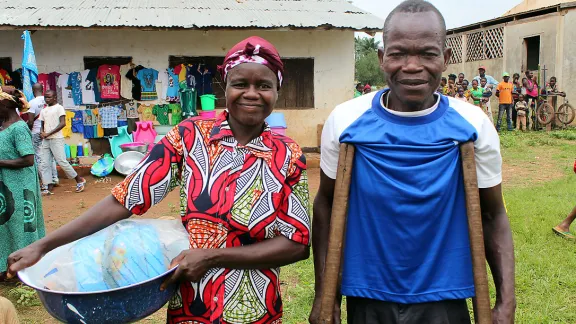
A couple at the voucher fair. Photo: LWF/C. Caraux-Pelletan
CAR: innovative voucher system instead of aid distribution
(LWI) - “It’s just like a market, we can choose ourselves what we need!” says Charlotte*, one of the 565 visitors to the relief goods fair organized in Nola, Sangha Mbaere province, Central African Republic. On that day, 15 local traders had set up their stands and beneficiaries were busy choosing and negotiating purchase of the items of their choice, as they would do in a normal market. The only difference was that instead of cash, they paid in vouchers and the “market” was set up in a football field.
The Central African Republic (CAR) is a site of one of the world’s forgotten crises. It is among the poorest countries on earth, and for the last 30 years has suffered recurrent political unrest and violence. The effects of the fighting along ethnic lines are most felt by civilians. According to the United Nations, 2.3 million people, half the country’s population, need humanitarian assistance.
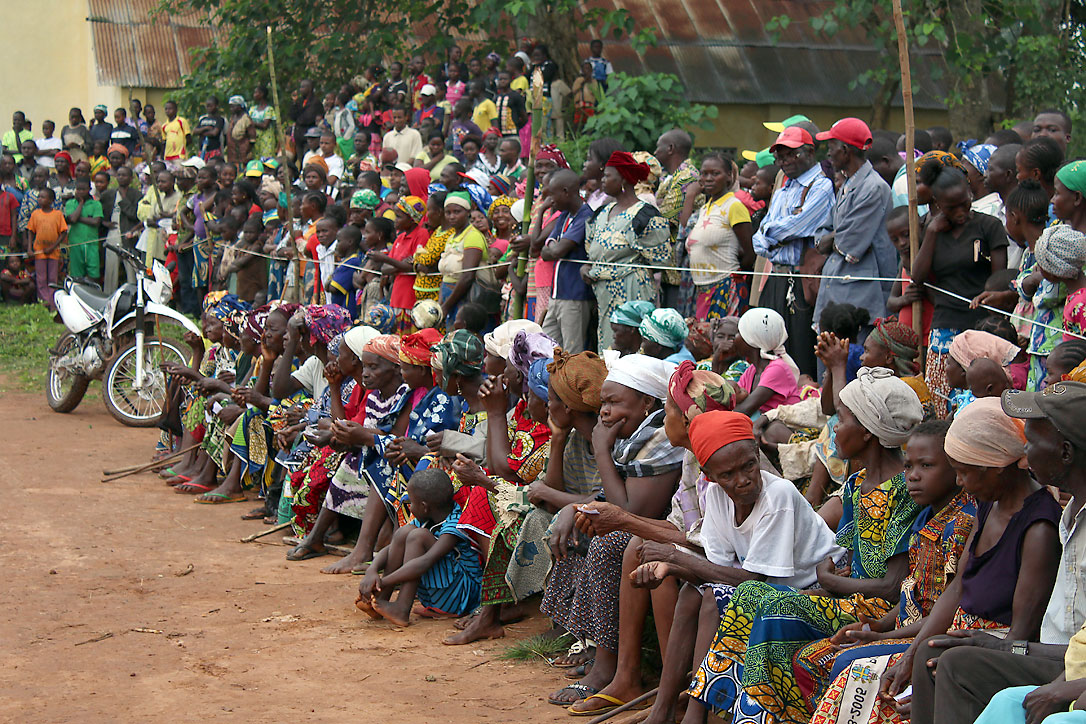
People wait for the opening of the market. Photo: LWF/C. Caraux-Pelletan
“Before the crisis, they had close to nothing and after the crisis, they do not have anything,” says Clémence Caraux-Pelletan, team leader of The Lutheran World Federation (LWF) in CAR. “What little they had has been destroyed and people do not have the means to purchase any of the most basic goods, repair their houses, or just find food or seeds for planting.”
LWF, together with other humanitarian organizations, is looking for ways to help and at the same time empower the people. Special attention is given to vulnerable people such as those living with disabilities, elderly, women and child-headed households and single women caring for a large number of dependents.
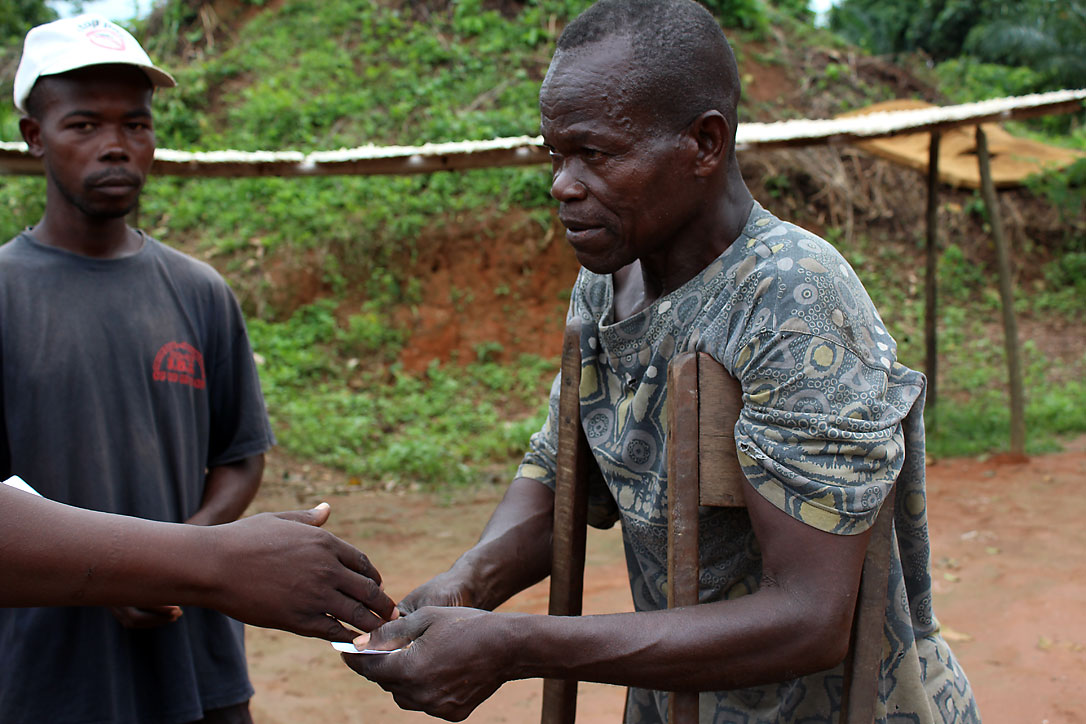
A man with a walking disability receives a voucher booklet. Photo: LWF/C. Caraux-Pelletan
Heard and considered as individuals
Since 2014, LWF has been moving away from distributing ready-made relief good kits to involving the beneficiaries in decisions about what kind of support they receive. The voucher system is simple - those selected are given a voucher book containing different bills amounting to the equivalent of US$30. With this booklet, they are free to search at the voucher market for the goods that they need and pay for these goods with vouchers rather than cash.
The voucher system enables beneficiaries to be heard and considered as individuals with specific needs and desires. Through this system, they are empowered; they feel dignified and participate actively in decisions for themselves.
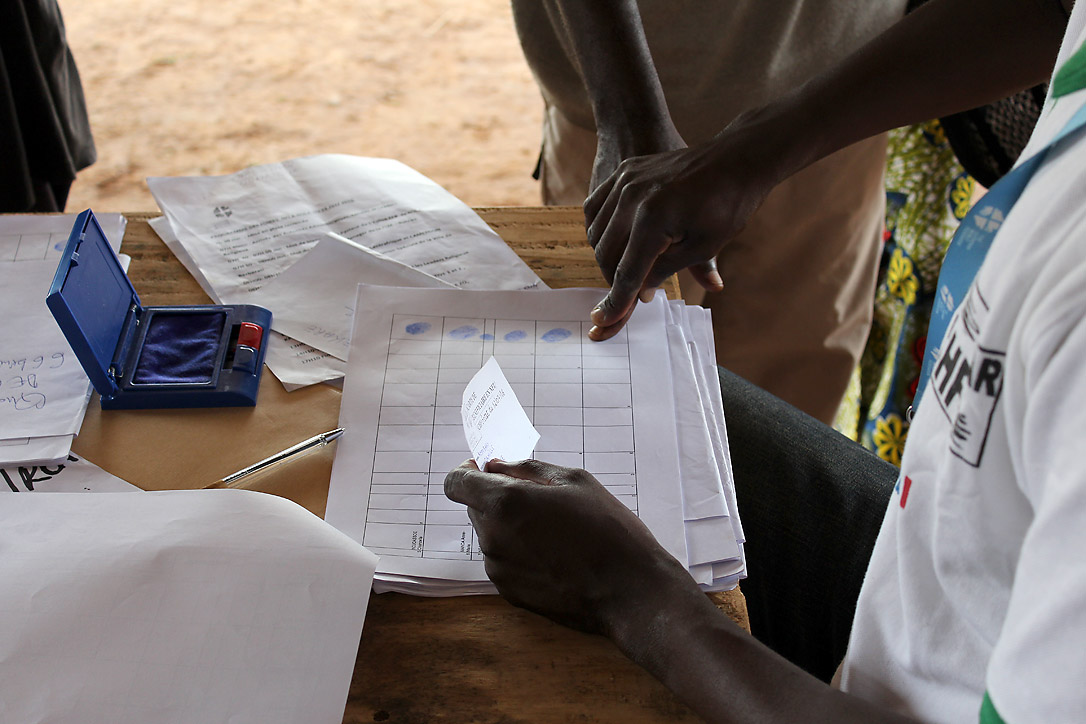
Registration of the mostly illiterate people. Photo: LWF/C. Caraux-Pelletan
“The items usually purchased by beneficiaries do not differ greatly from the contents of regular relief good kits,” says Caraux-Pelletan. “Buckets, basins, pots, mats, soap and blankets are the goods that they take home with them.” They are however able choose the type and quality of the items they require, which means they don’t have to sell goods after a distribution because they received something they already had, the team leader observes.
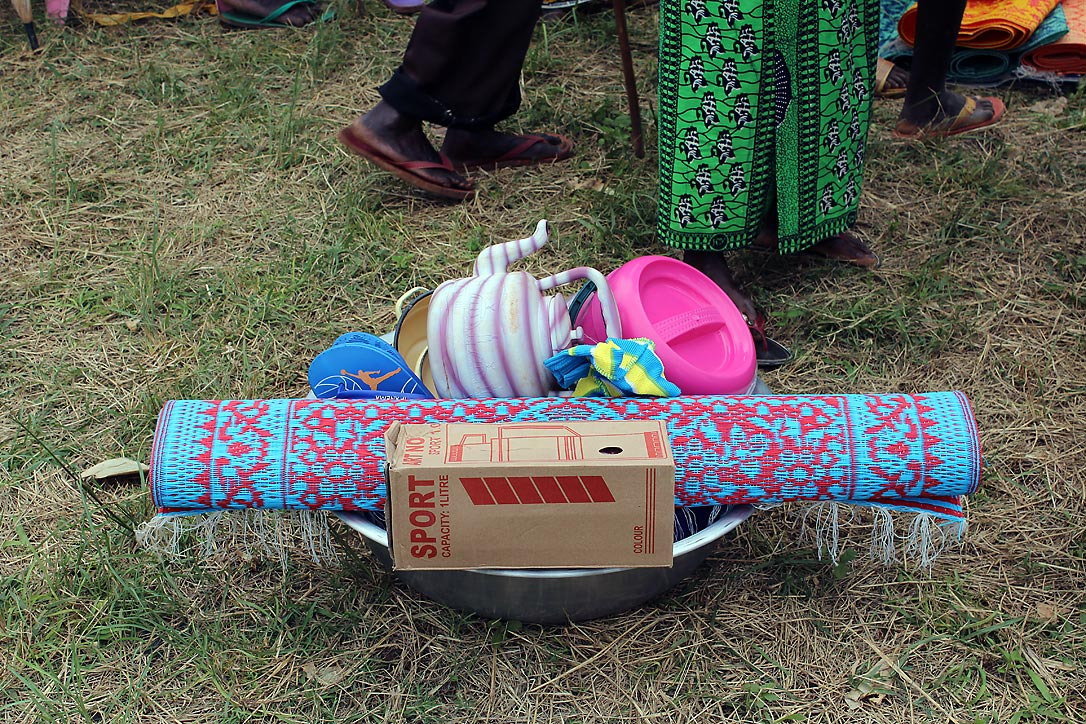
The items purchased with the vouchers are common relief goods. Beneficiaries however are able to choose what they need instead of receiving a ready-made parcel. Photo: LWF/C. Caraux-Pelletan
“Most importantly, the voucher system enables beneficiaries to be heard and considered as individuals with specific needs and desires. Through this system, they are empowered; they feel dignified and participate actively in decisions for themselves."
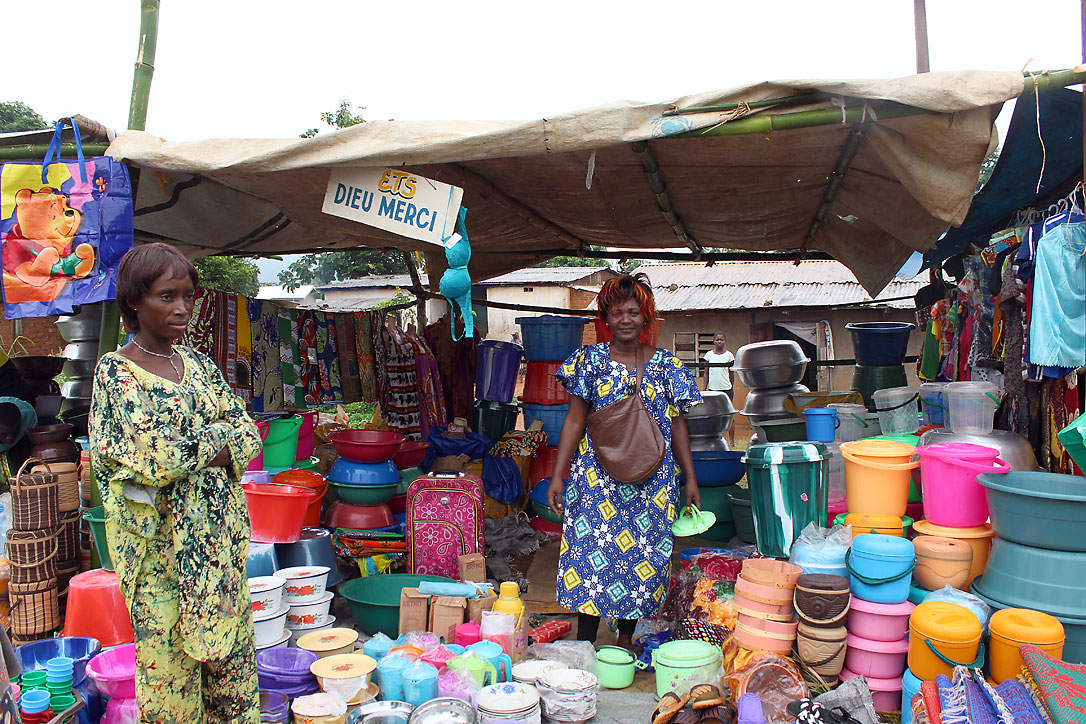
Shopping instead of receiving aid: A woman at the voucher market. Photo: LWF/C. Caraux-Pelletan
Reviving the local economy
LWF’s fairs are organized with the participation of local traders, to help strengthen their businesses and to play an active role in re-building the local economy, which in most places, has been crushed by the crisis. They can exchange the vouchers for cheques at the LWF office. All vouchers are stamped before the fair and are difficult to reproduce, in order to avoid fraud.
As single traders often do not have the resources to come with well-furnished stands, LWF supports them by forming village trading cooperatives. Traders from different communities, as well as female traders, are encouraged to participate as representatives of the community and to foster gender equality and social cohesion.
This voucher system is particularly successful in the western region of CAR where the security situation is relatively stable and the proximity to Cameroon also makes it easy to access relief goods. As spontaneous returns of refugees and internally displaced people increase in the region, humanitarian needs of host communities and returnee families increase as they seek to reintegrate into the communities.
The LWF has been working in CAR since early 2013 and remained in the country through the most recent crisis. LWF provides humanitarian support like access to water and sanitation, rebuilding livelihoods and addressing food security, strengthening social cohesion and peaceful resolution of conflicts, but also rebuilding homes and providing basic relief goods through the voucher fairs. In total, LWF supports 132,445 people with voucher fairs in the western provinces of CAR (Ouham Pendé, Nana Mambéré, Mambéré Kadei and Sangha Mbaere).
The work in CAR is possible thanks to our donors - the UN Humanitarian Fund, the German Ministry for Development (BMZ) and the German Foreign Office (AA) through Diakonie Katastrophenhilfe (DKH).
*Name has been changed.


